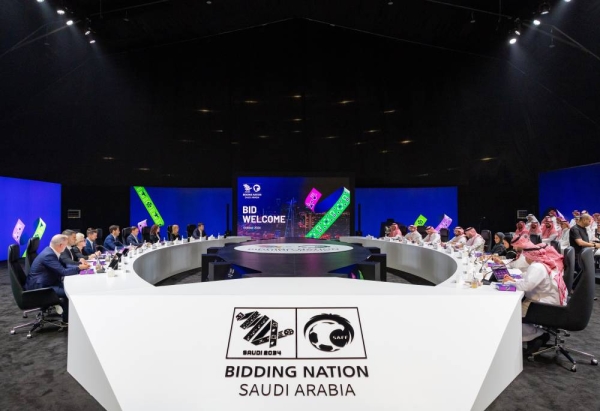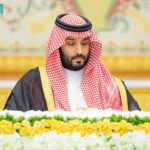The Saudi Minister of Sport, Prince Abdulaziz bin Turki Al-Faisal, met with a delegation from FIFA during their inspection visit to discuss Saudi Arabia’s bid to host the 2034 FIFA World Cup. The meeting focused on developing sports infrastructure and future projects to strengthen the country’s position in international sports. Discussions also explored opportunities for cooperation between Saudi Arabia and FIFA to promote sports at local and global levels.
Saudi Arabia has outlined plans to host the World Cup across five cities: Riyadh, Jeddah, Khobar, Abha, and NEOM. Matches will be held at 15 stadiums, 11 of which will be newly built. Riyadh will feature eight World Cup stadiums, including the King Salman Stadium with a seating capacity of over 92,000. Other venues in Riyadh include the iconic King Fahd Sports City Stadium and the Al-Murabba Stadium known for its unique design inspired by the Acacia tree.
Jeddah’s Central Jeddah stadium will be modeled after the city’s cultural heritage and traditional wooden architecture. Khobar’s Aramco Stadium will feature a dynamic design inspired by water whirlpools, while Abha’s King Khalid University Stadium is undergoing temporary expansion for the 2034 World Cup. The most remarkable venue will be NEOM’s stadium situated within “The Line” structure at an elevation of over 350 meters, powered entirely by renewable energy sources.
The FIFA delegation’s visit includes attending the Saudi Arabia vs. Japan match and visiting major Saudi football clubs and key sports projects locations such as the King Salman Stadium and the Qiddiya development. The visit reflects the Kingdom’s commitment to delivering a world-class World Cup experience. The delegation will also explore opportunities for enhancing cooperation between Saudi Arabia and FIFA to promote sports at both local and global levels.
Saudi Arabia’s bid to host the 2034 FIFA World Cup focuses on developing sports infrastructure and enhancing the country’s position in international sports. The Kingdom plans to host matches in five cities with 15 stadiums, 11 of which will be newly built. Riyadh will be a key host city with eight World Cup stadiums, including the King Salman Stadium which will host the tournament’s opening and final matches. Other cities like Jeddah, Khobar, Abha, and NEOM will also feature unique stadiums reflecting their cultural heritage and natural landscapes.
The FIFA delegation’s visit highlights Saudi Arabia’s commitment to delivering a world-class World Cup experience. The delegation’s discussions with Saudi officials focus on cooperation opportunities to promote sports both locally and globally. The Kingdom’s bid to host the 2034 FIFA World Cup includes plans to develop innovative and sustainable stadiums that showcase the country’s rich cultural heritage and natural beauty. The visit aims to explore opportunities for enhancing cooperation between Saudi Arabia and FIFA to create a successful and memorable World Cup event in 2034.










